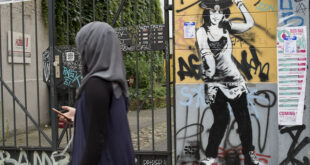El-Nawawy, Mohammed and Adel Iskandar. Al-Jazeera: How the Free Arab News Network Scooped the World and Changed the Middle East. Cambridge, MA: Westview Press, 2002.
Reviewed by Douglas A. Boyd, Professor, Department of Communication, and School of Journalism and Telecommunications. Director, Office of International Affairs, University of Kentucky
I must start with a disclaimer: I know both co-authors well; Adel Iskandar is a PhD student in my department; and I am quoted in the book. One obvious conclusion that many of us have already drawn is that the timing of the publication itself, March 2002, is approprite. The events of September 11 have been put in perspective, along with the network's coverage of the war in Afghanistan and the continuing violence in Palestine and Israel.
The book has many strengths, four of which are highlighted here. First, El-Nawawy and Iskandar do a first-rate job of placing Al-Jazeera within an Arab world media context. We learn about the historically state-controlled press; governments' long-standing attempts to influence information; and Al-Jazeera's origins, financing, and almost unique impact on Arab world audiences and the electronic media themselves. Second, they quote western and Arab-world academics and western and Arab press reaction extensively. Third, the publication is well written. I found it to be an easy, enjoyable read. Fourth, and possibly the strongest advantage that I see, is an extensive analysis of some of Al-Jazeera's most controversial programs, such as Faisal Al-Kasim's The Opposite Direction. For example, on page 98:
"The show . . . hosted two prominent Arab women who debated the practice of polygamy among Muslim men. One of the guests, Egyptian writer Safinaz Kazem, a Marxist-turned-Islamist, stormed off the set in the middle of the show; then her counterpart, a former Jordanian member of parliament Tojan Faisal, rejected polygamy as an antiquated practice. From Kazem's point of view, Faisal's view contradicted the Quran, and for that reason it could have cost Faisal her life. This show was the talk of the Arab world for months, and it infuriated the Islamic religious establishment. It was also the first time on Arab TV that anyone had ever walked off the set in the middle of an on-air broadcast."
Finally, there are eight pages of pictures, including a cartoon about the network, pictures of those in administrative positions at Al-Jazeera, and photos of some program hosts, including Faisal Al-Kasim.
Virtually anyone interested in international communication, especially those interested in the Arab world, can benefit from reading this book. For Western government officials, especially those with a post-9/11 renewed interest in reaching Arab-world television viewers and radio listeners, this is a must-read. It is solid study of how a regional service with the right programming mix can attract a large audience away from both government-controlled news and commercially oriented entertainment services.
Many will agree that this is not an academic book, but it comes close with regard to thorough documentation and plenty of primary research sources.
 Arab Media & Society The Arab Media Hub
Arab Media & Society The Arab Media Hub




